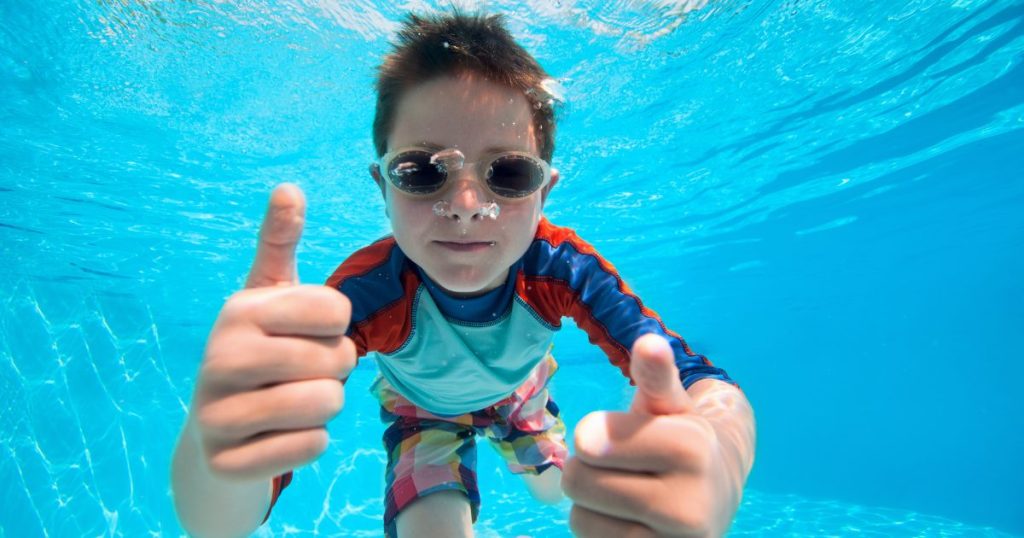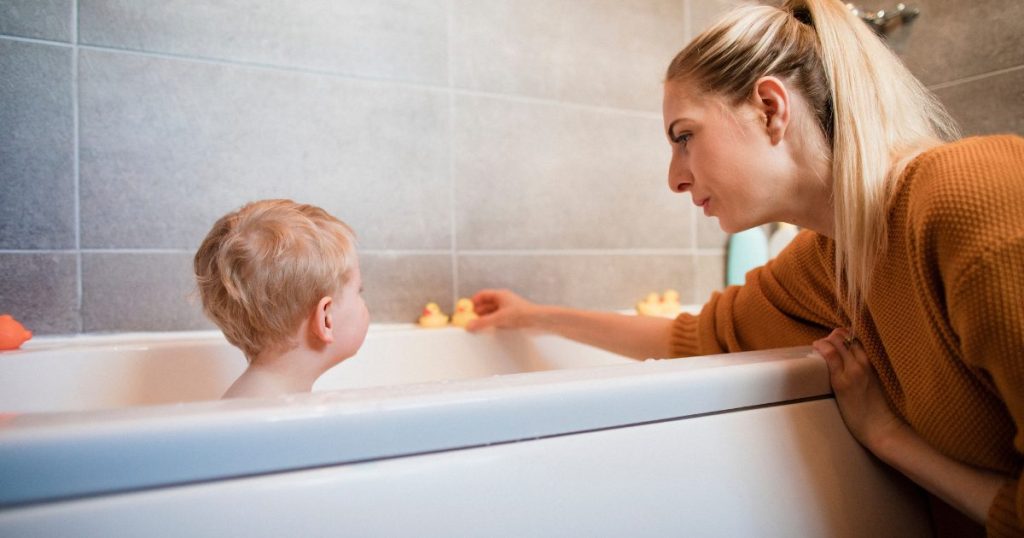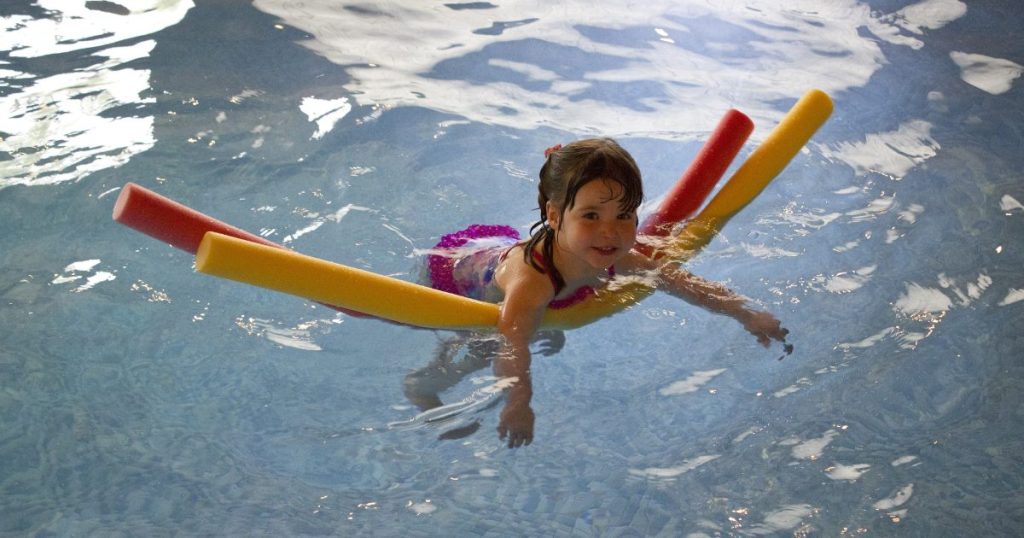18 Dec Swimming Tips- Overcoming the Fear of Water
For many parents, introducing their children to water can be a daunting experience, especially if the child shows fear or reluctance. At Brightwater Swim School, we understand that overcoming a fear of water takes time, patience, and the right approach. This guide offers practical tips to help parents support their little ones in becoming more comfortable around water, paving the way for a lifelong love of swimming.

Understanding the Fear of Water
Fear of water in children is more common than many parents realise. It may stem from a negative experience, such as a sudden splash or feeling out of control in water, or simply from the unknown. Young children often feel overwhelmed by the vastness and unpredictability of water, even in a controlled environment like a pool. Recognising and empathising with these fears is the first step. By understanding that their anxiety is real and valid, you can begin to address it in a way that builds trust and confidence.
Creating a Safe and Positive Environment
The environment in which children are introduced to water plays a crucial role in shaping their perception of swimming. Start by creating a calm and reassuring atmosphere at home. Bath time, for example, can be an excellent opportunity to gently introduce your child to water in a familiar and safe setting.

Avoid overwhelming them with too much water at once – start with a shallow paddling pool or even just letting them dip their toes in. When you transition to a pool, choose one that is warm, quiet, and child-friendly to help minimise distractions.
Start Slow: Small Steps to Build Confidence
When it comes to overcoming a fear of water, small victories matter. Begin by encouraging your child to interact with water in non-threatening ways, such as splashing their hands or feet or playing on the edge of the pool. Progress at their pace, gradually increasing their exposure to water while always celebrating their achievements. If they see you enjoying the water and remaining calm, it can reassure them that there’s nothing to fear. It’s important not to rush – forcing a nervous child into the water can have the opposite effect and may reinforce their fear.
Using Play and Toys to Make Water Fun
Play is a powerful tool for building confidence in nervous swimmers. Use colourful floating toys, watering cans, or bubbles to make the water feel less intimidating and more like a playground. Games like “catch the floating ball” or pretending to be sea creatures can distract children from their fears and help them associate water with fun.

For younger children, simple songs or storytelling while they explore the water can spark their imagination and reduce anxiety. The goal is to help them relax and enjoy themselves without focusing on swimming skills too soon.
The Importance of Breathing and Relaxation Techniques
Teaching your child how to breathe calmly in the water can significantly reduce their fear. Practice simple breathing exercises out of the water, such as inhaling deeply and exhaling slowly. Once they’re comfortable, transition these techniques to the water by blowing bubbles or practicing gentle breaths while their face is near the surface. These activities not only build confidence but also help them understand that staying relaxed makes floating and swimming easier. The ability to manage their breathing can be a game-changer for nervous swimmers.
Encouraging Independence with Gentle Support
It’s natural for children to cling to parents or swimming aids in the water, but encouraging small steps toward independence can help them feel more capable. Floatation devices like noodles or arm bands can provide a sense of security while allowing them to move freely. However, it’s important to stay close by, offering reassurance and guidance as they explore the water at their own pace. Celebrate every effort they make, no matter how small – it’s these moments of achievement that will gradually build their confidence.
Choosing the Right Swimming Lessons
Sometimes, the best way to help a nervous swimmer is to enrol them in lessons tailored to their needs. At Brightwater Swim School, we specialise in teaching children as young as four months old, with patient and playful techniques that help even the most hesitant swimmers feel at ease. Our experienced instructors use gentle techniques, engaging activities, and positive reinforcement to guide children through every step of their water journey. We also offer Parent and Child lessons for younger children which can often help make them feel more confident and safer in the water. With the right support, your child can develop the skills and confidence they need to enjoy swimming for years to come.
Helping your child overcome a fear of water is a journey, but it’s one worth taking. By understanding their fears, creating a supportive environment, and introducing water in a fun and gradual way, you can help your child build the confidence they need to thrive in the water. At Brightwater Swim School, we’re here to support you every step of the way.
If you’d like to enquire about enrolling your child onto one of our lessons or find out more about Brightwater Swim School, we’d love to hear from you! You can get in touch via email: info@brightwaterswim.co.uk or use our contact form here.



No Comments